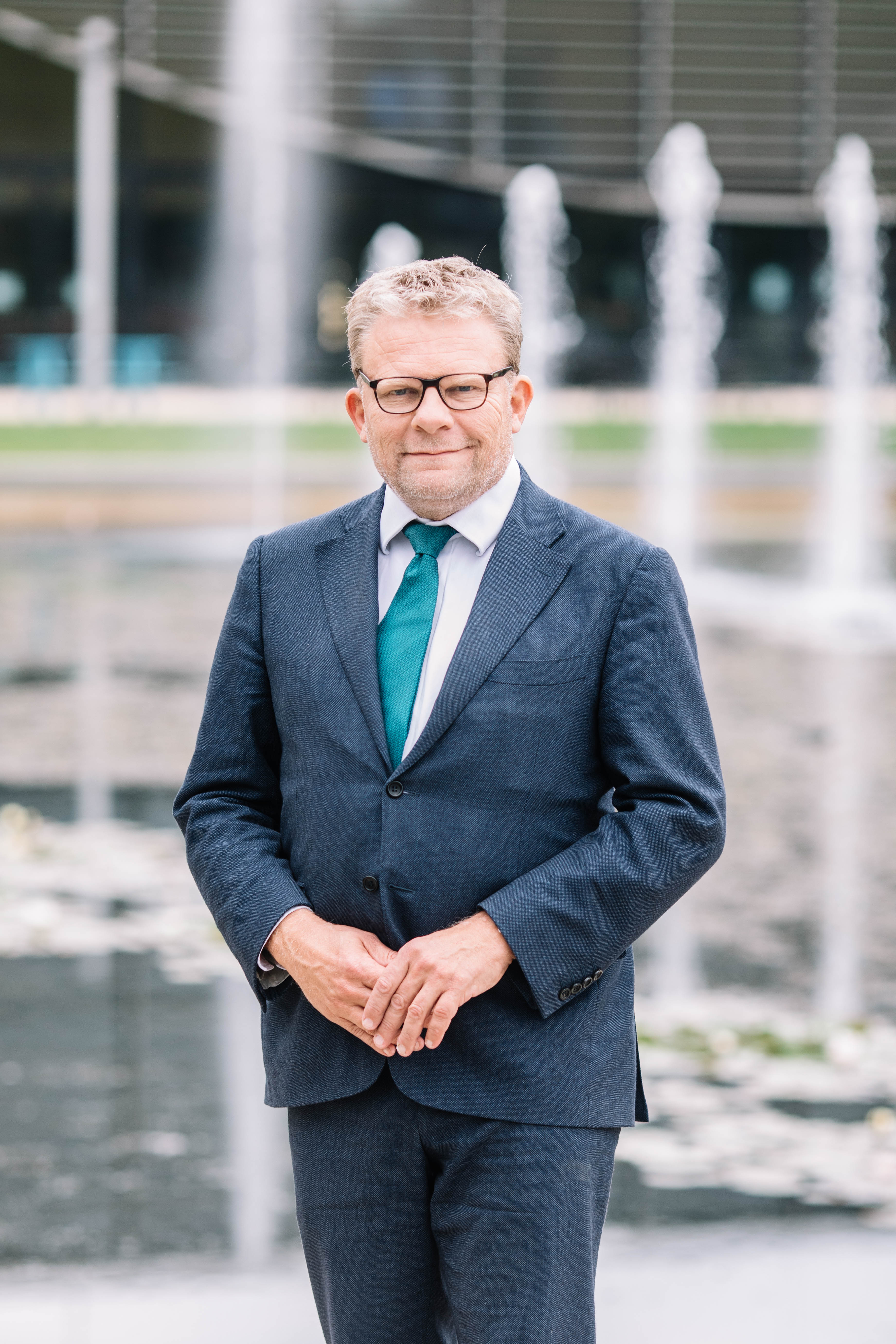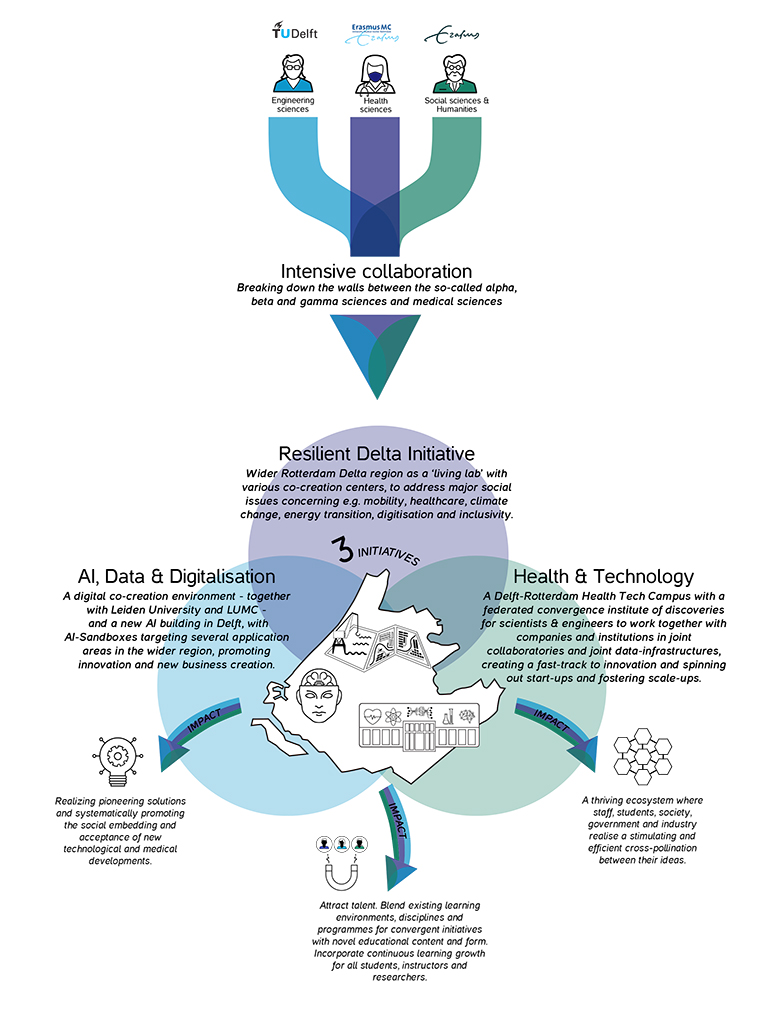
Convergence and societal impact
By Rutger Engels, Rector Magnificus EUR
How do you respond as a country to the social disruption caused by infectious diseases such as Covid-19? How can we further innovate the technologisation of society and the rapid growth of Artificial Intelligence and big data, and truly implement the insights gained? As a society, what answers do you have for migration, economic inequality, the future of the city, social cohesion and cooperation within Europe, and sustainability? For us at Erasmus University Rotterdam, these issues and developments are challenges that we like getting our teeth into. And to achieve the maximum effect and results, we are working on them together with Erasmus MC and Delft University of Technology.

Convergence
Societal, technological and medical challenges are often already complex in themselves, but we are also increasingly aware that they are interrelated and self-reinforcing. Societal problems are not either technological or social in nature: they are always both, and they require an integrated approach. They call for new forms of knowledge and knowledge development that will only be possible if scientific disciplines grow towards each other, if they converge. Only with this convergence can we achieve the necessary impact on our society.
Three programmes
Given the status of our knowledge institutions in Zuid-Holland among the best in the world, and our shared responsibility for society, it makes total sense to intensify collaboration between TU Delft, Erasmus MC and EUR across a range of areas. In recent years, researchers and teaching staff have already come together in the Leiden-Delft-Erasmus (LDE) Alliance and the Medical Delta partnership.
We are in the process of intensifying and scaling up this collaboration in a joint research and education strategy made up of three programmes: Medical Technology, Artificial Intelligence (AI) and Resilient Delta.
Utilizing each other’s infrastructure in this way will enable us to have a real impact on society. And we will be able – and this is my true hope – for example in the area of health and technology, to change our healthcare from reactive to proactive, by focusing on prevention, health promotion or early detection. This will enable us to deliver tailored results, by providing a personalized approach rather than ‘one size fits all’.
The ultimate aim is to achieve lifelong good health, from the unborn child to the end of life, in a way that is affordable and achievable for everyone. If such programmes are to succeed, it is of the utmost importance that they can count on the support of the whole of society.
